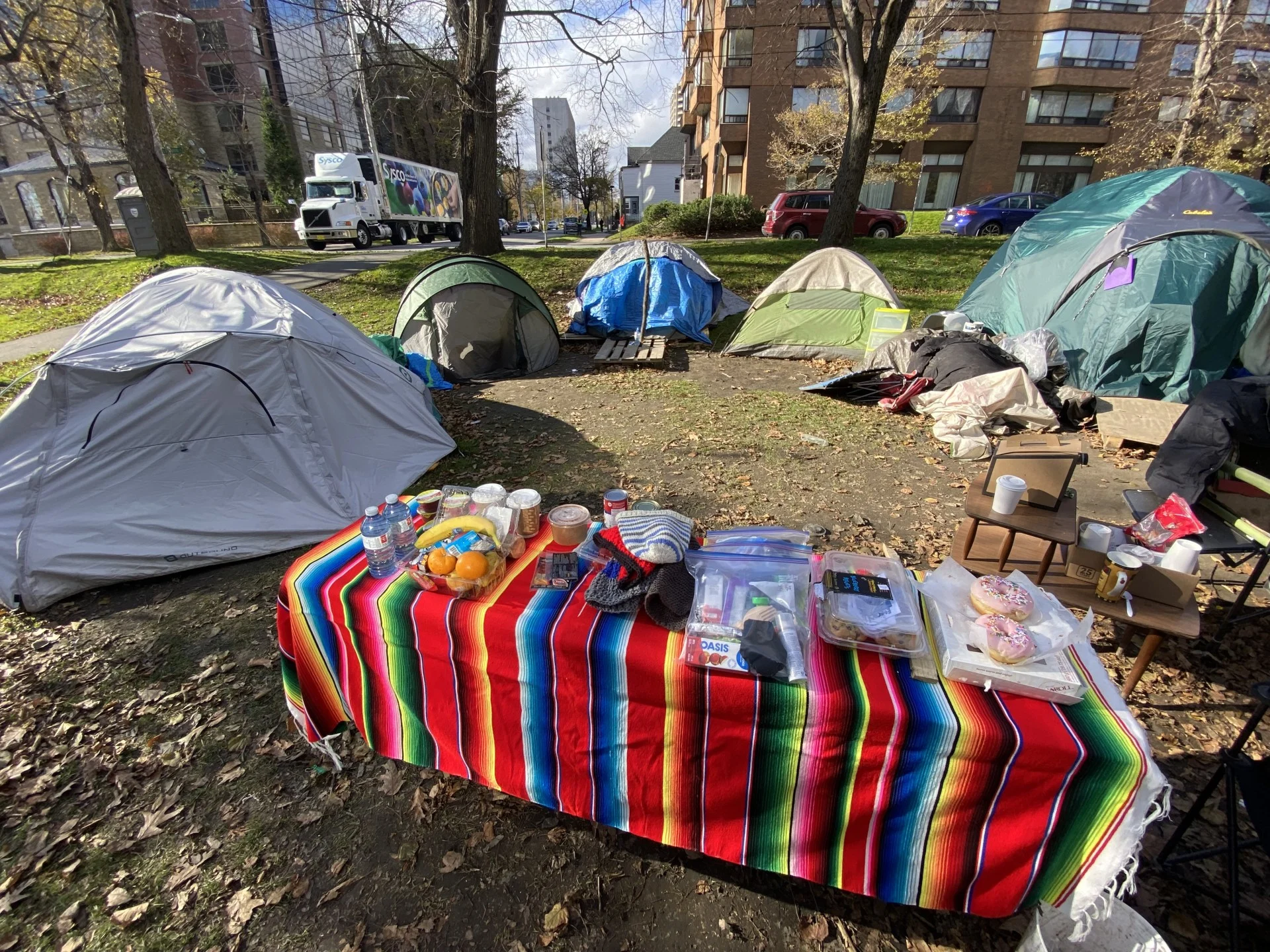
As winter creeps closer, unhoused communities in Halifax brace for cold
"...people are going to die if the city doesn’t do something soon"
At age 50, Kathryn Jones Cleroux became homeless for the first time in her life on July 18th and moved into a tent in Halifax’s Victoria Park in early August.
“I’d given up on good people until I came here, but the people of Halifax are beautiful," Jones Cleroux shares with The Weather Network. "Many people come here every day and drop off food, blankets, and clothes."
With temperatures quickly dropping, she’s already begun to winter-proof her tent.
“What this community needs are some winter tents and some insulated tarps because it’s already cold,” she explains.

Kathryn Jones Cleroux moved into a tent in Halifax’s Victoria Park in early August. She worries more needs to be done by the city to protect unhoused communities ahead of winter. (Nathan Coleman/The Weather Network).
RELATED: Five terrible things extreme cold does to the human body
Jones Cleroux thinks she should be able to make it through, but she worries about others in her tent village.
"I’m making it a challenge for myself at 50 [years old] to make it through the winter in my tent. But I’m not someone who carries a lot of addictions. I'm not someone who has a serious mental illness, which is the case with a lot of people on the street. And they don’t have the benefits that I have and the mental capacity to plan for winter. And those people are going to die if the city doesn’t do something soon," she says.
An emergency winter shelter will be opened in mid-November in Dartmouth. In a news release, the Department of Community Services said the space will initially have 50 beds, but more could be added based on need and extreme weather events. The shelter—the former St. Paul Church on Windmill Road—will accommodate people with pets. Along with that, 200 pallet shelters will be assembled across Nova Scotia, including 100 in HRM.
“They’re a small home that is climate-controlled and has supports and services wrapped around it as well," Joy Knight, executive director of Nova Scotia’s Employment Support and Income Assistance, tells the Weather Network. "It does bring people in temporarily from sleeping outside and assures again the attachment services, which are the most important part, and the intention is that when we met them where they are in these pallet villages, these tiny homes were able to help them move towards permanent housing."
“We share the concerns of all Nova Scotians that there are people sleeping outside, so we knew we had to have a comprehensive response to that,” she added.
To learn more about Kathryn Jones Cleroux's living conditions and how you can help, watch the video that precedes this article.











